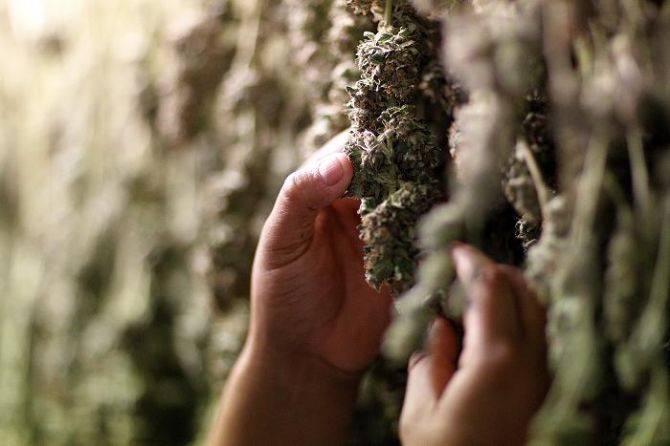Pain Relief Without the High - A New Perspective on Medical Marijuana from UCSF

The first human study of its kind investigating the effects of adding cannabinoids to an opiates-only treatment for chronic pain may have far reaching implications on how treatment with medical marijuana is approached moving forward.
“Pain is a big problem in America and chronic pain is a reason many people utilize the health care system,” said the paper’s lead author, Donald Abrams, MD, professor of clinical medicine at UCSF and chief of the Hematology-Oncology Division at San Francisco General Hospital and Trauma Center (SFGH). “And chronic pain is, unfortunately, one of the problems we’re least capable of managing effectively.”
UCSF researchers found that patients with chronic pain may experience greater relief if their doctors add cannabinoids to their treatment, and a combined therapy could result in reduced opiate dosages. What’s intriguing is how different strains of cannabis may be capable of producing pain-relieving effects without the high associated with THC.
Delta 9 THC is the main psychoactive component of cannabis but cannabis contains about 70 other similar compounds with different effects. For instance the compound cannabidiol, or CBD, appears to be very effective against pain and inflammation without the high created by THC.
“I think it would be interesting to do a larger study comparing high THC versus high CBD cannabis strains in association with opiates in patients with chronic pain and perhaps even having a placebo as a control,” Dr. Abrams said. “That would be the next step.”
The study, supported by funds from the National Institutes on Drug Abuse (NIDA), focused on 21 chronic pain patients who were being treated with long-acting morphine or long-acting oxycodone. Their treatment was supplemented with controlled amounts of cannabinoids, inhaled through a vaporizer, for four consecutive days. Overall, patients showed a significant decrease in their pain.
The UCSF paper was published in this month’s Clinical Pharmacology & Therapeutics.
Published by Medicaldaily.com



























